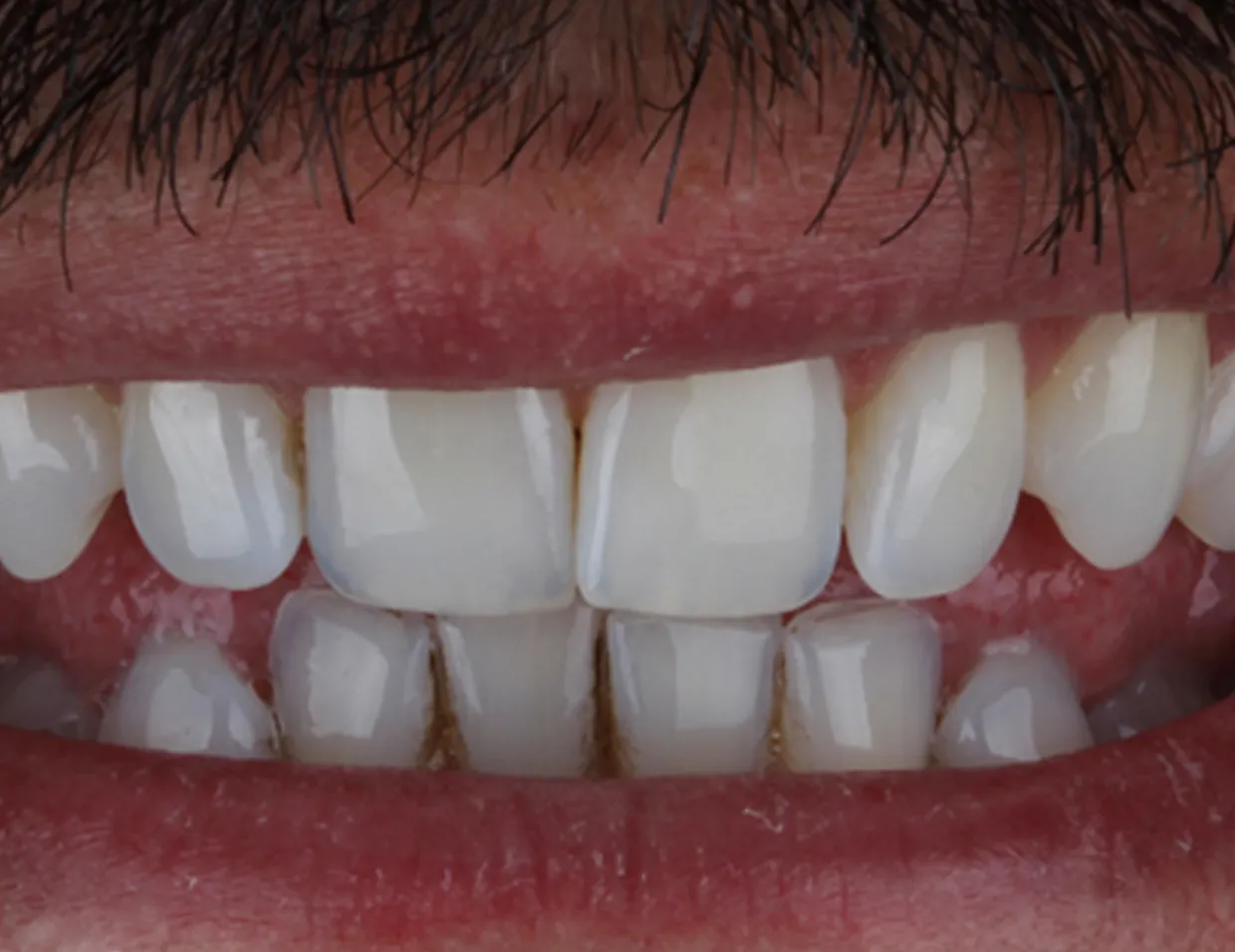What is Laser Teeth Whitening
Laser teeth whitening, also known as power whitening or in-office whitening, is a cosmetic dental procedure designed to brighten your teeth. It’s a popular choice for those seeking a quick and effective way to enhance their smile. Unlike over-the-counter whitening products, laser whitening is performed by a dental professional, ensuring a controlled and often more dramatic result. The procedure utilizes a powerful bleaching agent, typically a high-concentration hydrogen peroxide gel, which is applied to the teeth. A special laser light then activates the gel, accelerating the whitening process. This method can often achieve several shades of improvement in a single session, making it a desirable option for those seeking immediate results. Understanding the process is the first step in addressing the common concern does teeth laser whitening hurt?
How Laser Teeth Whitening Works
The science behind laser teeth whitening revolves around the chemical reaction between the bleaching agent and the stains on your teeth. The hydrogen peroxide gel penetrates the enamel, breaking down the stain molecules. The laser light acts as a catalyst, speeding up this process. The laser doesn’t directly whiten the teeth; instead, it enhances the effectiveness of the whitening agent. This allows for a more efficient and often quicker whitening process compared to other methods. The heat from the laser also helps to open the pores of the enamel, allowing the bleaching agent to penetrate deeper and reach a wider area of the stained molecules. This comprehensive approach ensures a more uniform whitening effect across the tooth surface.
The Laser Whitening Procedure Step-by-Step

The laser teeth whitening procedure typically involves several key steps. First, your dentist will examine your teeth to ensure you’re a suitable candidate for the treatment. The dentist will then clean your teeth to remove any plaque or debris. Next, a protective barrier, such as a rubber dam or cheek retractors, is placed to protect your gums and soft tissues from the bleaching agent. The whitening gel is applied to the surface of your teeth, and then the laser light is directed at the teeth for a specific duration, usually for several minutes. This process may be repeated multiple times during a single session to achieve the desired level of whitening. The entire procedure usually takes about an hour to an hour and a half, making it a relatively quick cosmetic solution.
Fact 1 Pain levels differ
The experience of pain during laser teeth whitening varies significantly from person to person. While some individuals report no discomfort at all, others may experience some level of sensitivity or mild pain. This variability is due to several factors, including the individual’s sensitivity threshold and the condition of their teeth. It’s crucial to understand that pain isn’t a universal experience with this procedure. The intensity of the pain, if any, can range from a mild tingling sensation to a more noticeable ache. Being prepared for a range of possible sensations can help manage expectations and ease any anxiety about the procedure. Your dentist will also take precautions to minimize any potential discomfort.
Sensitivity A Common Side Effect
Tooth sensitivity is a common side effect of laser teeth whitening. This occurs because the bleaching agent can temporarily affect the pores in your enamel, which leads to the exposure of the underlying dentin, which contains the nerve endings. This makes your teeth more sensitive to hot and cold temperatures. The sensitivity usually subsides within a few days after the procedure, as the enamel remineralizes. Most patients experience only mild sensitivity, but in some cases, it can be more pronounced. It is important to discuss any pre-existing sensitivity issues with your dentist before the procedure, so they can take appropriate measures to minimize discomfort.
Managing Sensitivity
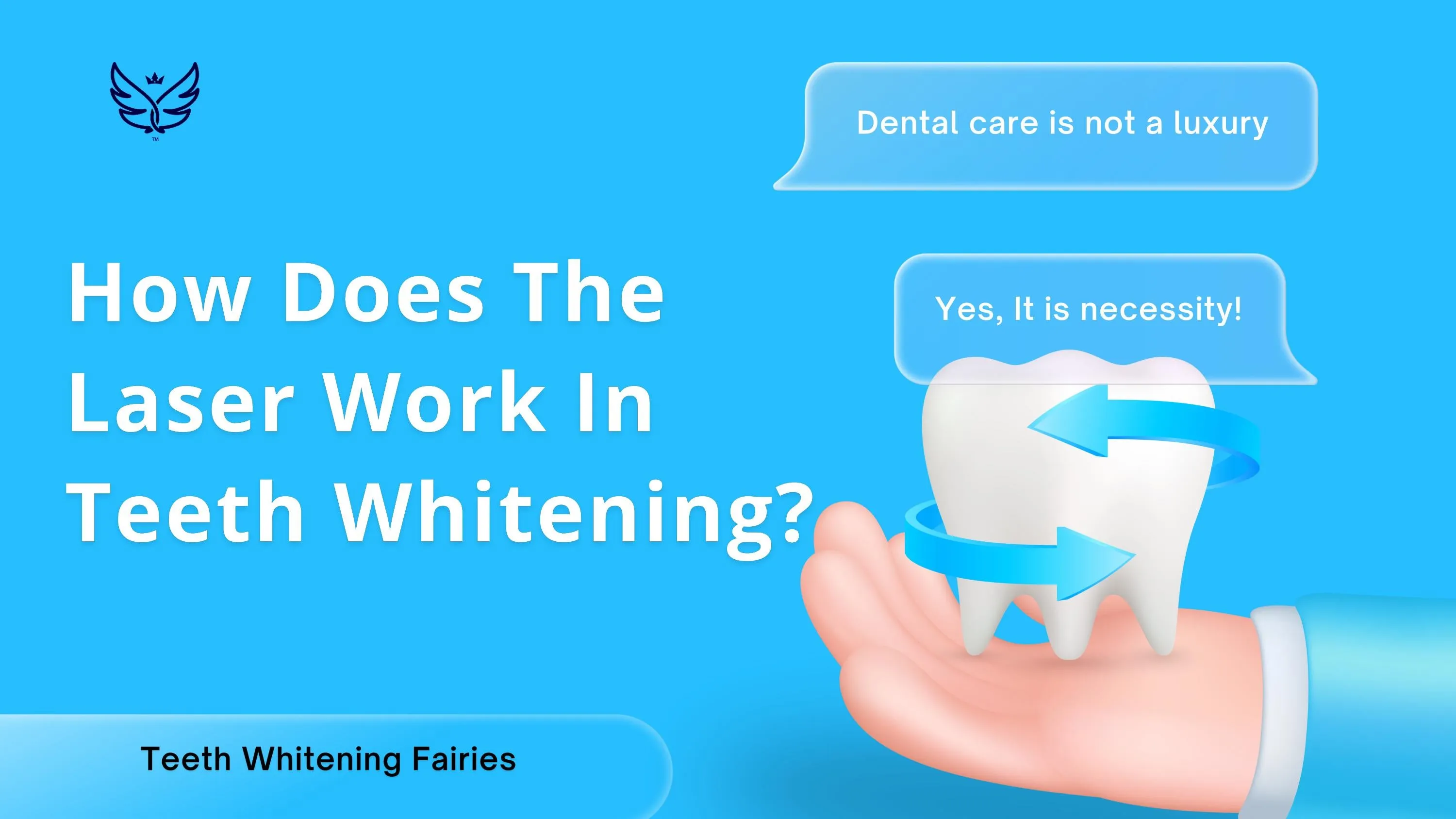
There are several ways to manage tooth sensitivity after laser teeth whitening. Your dentist may recommend using a toothpaste designed for sensitive teeth, which contains ingredients like potassium nitrate that help to block the nerve endings. Avoiding very hot or cold foods and drinks for the first few days after the procedure can also help. Over-the-counter pain relievers, such as ibuprofen or acetaminophen, can be taken to alleviate any discomfort. In some cases, your dentist may apply a fluoride varnish to strengthen the enamel and reduce sensitivity. Following your dentist’s aftercare instructions carefully is essential to minimize sensitivity and ensure a comfortable recovery.
Fact 2 Factors Affecting Pain
Several factors can influence the level of pain experienced during laser teeth whitening. These include the individual’s existing oral health conditions, the strength of the whitening agent used, and the technique employed by the dentist. Understanding these factors can help you better prepare for the procedure and manage your expectations. A thorough assessment by your dentist before the treatment is crucial to identify any potential risk factors and tailor the procedure to minimize discomfort. Patients with pre-existing conditions, such as cavities, gum disease, or cracked teeth, may experience higher sensitivity levels. The more you know, the better equipped you will be.
Your Overall Oral Health
Your overall oral health plays a significant role in how you experience laser teeth whitening. If you have any pre-existing dental issues, such as cavities, gum disease, or exposed root surfaces, you may experience increased sensitivity or pain. It’s essential to address any of these issues before undergoing teeth whitening to ensure the best possible outcome and minimize discomfort. Your dentist will conduct a thorough examination to identify any potential problems and recommend appropriate treatment. Maintaining good oral hygiene, including regular brushing, flossing, and dental check-ups, is also vital for healthy teeth and gums, which can reduce your risk of experiencing pain during the procedure. If your teeth are healthier, this will also reduce the potential of pain.
The Strength of the Whitening Agent
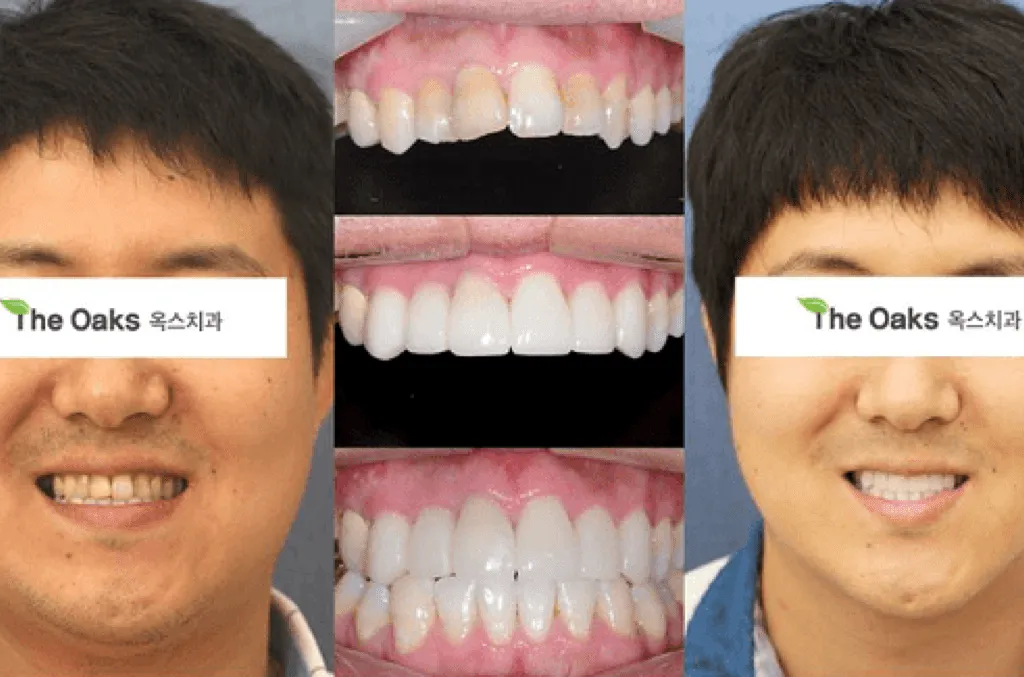
The concentration of the bleaching agent used during laser teeth whitening can also affect the level of pain experienced. Higher concentrations of hydrogen peroxide can produce faster and more dramatic whitening results, but they may also increase the likelihood of sensitivity. Dentists typically use a range of concentrations, and they will choose the most appropriate one based on your individual needs and the condition of your teeth. It’s important to discuss your sensitivity concerns with your dentist before the procedure, so they can adjust the concentration of the whitening agent accordingly. This may involve using a lower concentration or applying the gel for shorter periods to minimize potential discomfort.
Fact 3 Pain vs. Discomfort
It’s crucial to distinguish between pain and discomfort when discussing laser teeth whitening. While some individuals may experience sharp pain, this is less common. More often, patients report experiencing some level of discomfort, such as sensitivity to hot or cold, a tingling sensation, or mild aching. Understanding the difference can help you manage your expectations and communicate effectively with your dentist. Discomfort is generally temporary and manageable, while severe pain warrants immediate attention. Being aware of the types of sensations that are considered normal and those that may indicate a problem can help you ensure a smooth and comfortable experience during and after the procedure. Your dentist is the best person to determine what type of pain you are experiencing.
Understanding the difference
Pain is a sharp, intense sensation that can be debilitating, while discomfort is a less severe sensation that may be irritating or unpleasant, but it does not significantly affect your ability to function. During laser teeth whitening, discomfort often manifests as sensitivity to temperature changes or a mild ache in the teeth. This discomfort is usually temporary and subsides within a few days. Pain, on the other hand, may indicate an underlying dental problem or an adverse reaction to the procedure. If you experience severe or persistent pain, it’s essential to consult your dentist immediately to rule out any potential complications. Understanding the difference will allow you to better describe your experience to your dentist.
What to Expect During the Procedure
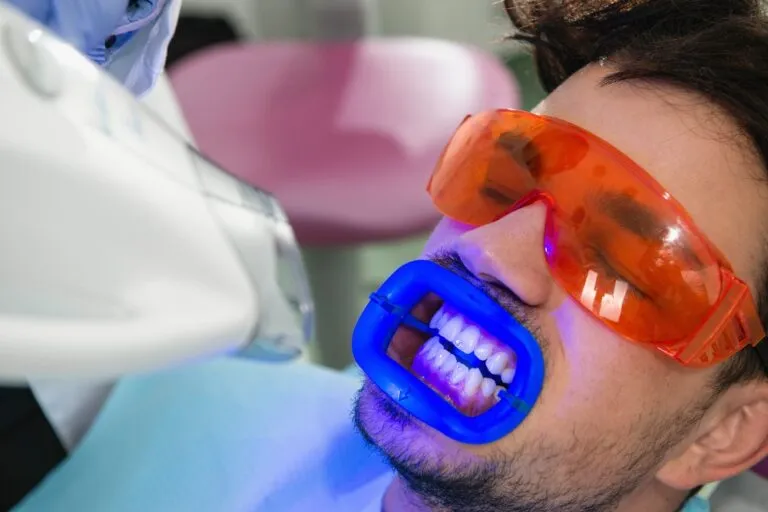
During the laser teeth whitening procedure, you can expect the dentist to take steps to minimize any discomfort. These may include applying a protective barrier to your gums, using a lower concentration of the bleaching agent, or adjusting the duration of the laser light exposure. You may feel a mild tingling or warming sensation during the procedure, which is generally considered normal. Some patients may also experience some minor sensitivity during or immediately after the treatment. Your dentist will monitor your comfort level throughout the procedure and will adjust the treatment accordingly. Communication is key; be sure to inform your dentist of any discomfort you experience so they can make adjustments to minimize your discomfort. If you have any concerns about the procedure, share it with the dentist.
Fact 4 Aftercare and Pain Management
Proper aftercare is essential to manage any potential pain or sensitivity after laser teeth whitening. Your dentist will provide specific instructions on how to care for your teeth and gums following the procedure. This typically includes avoiding certain foods and beverages, using a toothpaste designed for sensitive teeth, and following a regular oral hygiene routine. Taking these steps will help your teeth recover and minimize any discomfort. It’s important to adhere to these guidelines to ensure the best possible outcome and a comfortable experience. Following your dentist’s instructions will assist in any pain management required. If you have any questions about aftercare, ask your dentist.
Following Post-Whitening Instructions
Following your dentist’s post-whitening instructions is crucial to manage any potential pain or sensitivity. These instructions typically include avoiding highly pigmented foods and drinks, such as coffee, tea, red wine, and berries, for the first 24 to 48 hours. You should also avoid smoking, as it can stain your teeth and increase sensitivity. Brushing gently with a soft-bristled toothbrush and using a toothpaste designed for sensitive teeth can also help. Your dentist may also recommend using a fluoride rinse to strengthen your enamel and reduce sensitivity. Adhering to these guidelines can significantly minimize any discomfort and help you maintain your newly whitened smile. Ask your dentist if you have any questions about the instructions.
Over-the-Counter Pain Relief
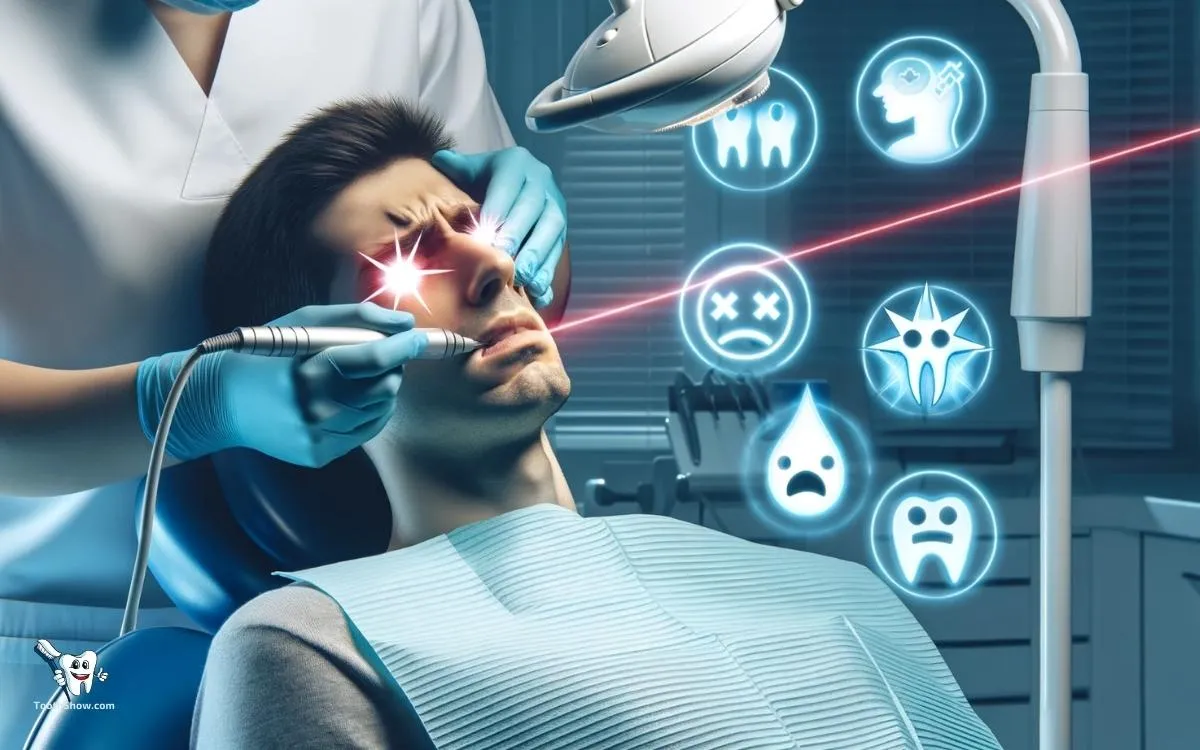
Over-the-counter pain relievers can be effective in managing mild discomfort or sensitivity after laser teeth whitening. Medications like ibuprofen (Advil, Motrin) or acetaminophen (Tylenol) can help alleviate any pain or inflammation. Always follow the dosage instructions on the product label. If you experience severe pain or if the pain relievers are ineffective, contact your dentist immediately. They may recommend alternative pain management strategies or investigate potential complications. It’s important to discuss any medications you are taking with your dentist before the procedure to ensure they are safe and will not interfere with the treatment. If you are sensitive to any medication, inform your dentist prior to beginning the procedure.
Fact 5 When to Consult Your Dentist
While some level of sensitivity after laser teeth whitening is normal, it’s important to know when to consult your dentist. You should contact your dentist if you experience severe pain, if the sensitivity lasts for more than a few days, or if you notice any other concerning symptoms, such as bleeding gums or changes in your bite. Promptly addressing any concerns can help prevent complications and ensure that your teeth and gums remain healthy. Your dentist can provide a comprehensive assessment of your situation and recommend appropriate treatment or management strategies. Don’t hesitate to contact your dentist if you have any questions or concerns following the procedure; it’s always better to be safe than sorry.
Identifying Severe Pain
Identifying severe pain is crucial to determine when to seek professional help. Severe pain is often described as intense, throbbing, or constant, and it may be accompanied by other symptoms, such as swelling, bleeding, or fever. If you experience any of these symptoms after laser teeth whitening, contact your dentist immediately. They will perform a thorough examination to determine the cause of the pain and recommend appropriate treatment. Waiting to seek professional help can lead to more serious complications, so it’s important to address any concerns promptly. Pay attention to your body’s signals and don’t hesitate to contact your dentist if something doesn’t feel right.
Other Potential Complications
In addition to pain and sensitivity, there are other potential complications that may arise after laser teeth whitening. These can include gum irritation, changes in tooth structure, or allergic reactions. Although rare, these complications highlight the importance of seeking professional dental care and following your dentist’s instructions. If you notice any unusual symptoms, such as persistent gum pain, changes in the color of your teeth, or any allergic reactions, contact your dentist immediately. They will provide a comprehensive assessment and recommend appropriate treatment. Being aware of these potential complications can help you take proactive steps to ensure a safe and successful teeth whitening experience.
Conclusion
Laser teeth whitening is a popular cosmetic procedure that can significantly enhance your smile. While some individuals may experience some level of discomfort, the pain is generally manageable and temporary. Understanding the potential for pain, the factors that influence it, and how to manage it can help you make informed decisions and prepare for the procedure. Communication with your dentist and adhering to aftercare instructions are essential for a positive outcome. If you are considering laser teeth whitening, consult with a qualified dentist to discuss your options, address any concerns, and ensure a safe and comfortable experience. Always prioritize your oral health and seek professional guidance for any dental procedure.
